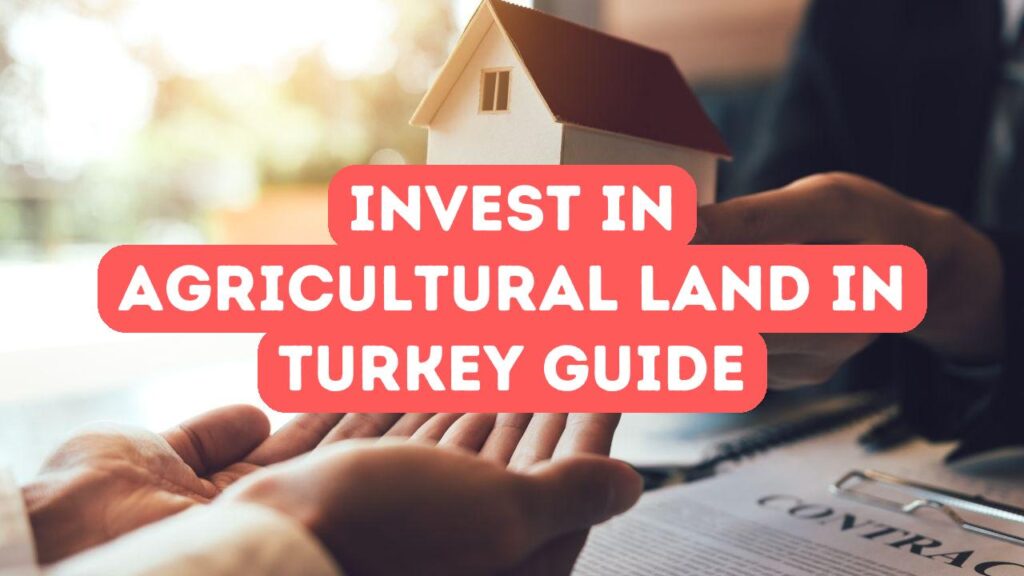Dreaming of a venture into the fertile fields of Turkey? Learning how to invest in agricultural land here could turn that dream into reality. Turkey is rich in farming opportunities, offering vast tracts that promise fruitful returns. With the country’s diverse climate and strategic location, Turkey land investment is a growing trend. For those looking to buy farmland in Turkey, the process can be straightforward yet rewarding, paving the way for sustainable growth. Agricultural real estate in Turkey not only supports the local economy but also presents a solid investment avenue. Understanding the nuances will guide you toward making informed decisions in this flourishing market. Whether you aim for crops or livestock, Turkey farming opportunities are bountiful, waiting for savvy investors to seize them. Investing in agricultural land here could be your golden ticket to a thriving future in one of the world’s most promising agrarian sectors.
Understanding the Legal Framework for Agricultural Investments in Turkey
Navigating Turkey’s legal landscape is crucial when planning to invest in agricultural land. The country’s framework is designed to support and regulate agricultural real estate activities, ensuring smooth transactions for potential investors. Begin by acquainting yourself with local regulations and the specific requirements for foreign ownership. Understanding these rules can help you avoid legal pitfalls and make informed decisions. Partnerships with local experts or legal advisors could be invaluable, paving the way for a successful purchase. Turkey land investment laws can vary by region, making it vital to research thoroughly and consult authorities when aiming to buy farmland in Turkey. Additionally, certain permissions and documentation might be necessary to fully access Turkey farming opportunities. With clarity and preparation, you’ll be well on your way to securing your place in this fertile market.
Investing in agricultural land in Turkey requires a thorough grasp of the country’s legal framework. Familiarize yourself with the Land Registry and Cadastre laws, as they are the backbone of all real estate transactions. Understanding these laws will make the process of Turkey land investment smoother and more efficient. It’s essential to know that buying farmland in Turkey involves checks to ensure that the land isn’t in prohibited zones. Prospective investors should be aware of zoning laws and whether their desired agricultural real estate lies in restricted areas. Working with local legal experts can help you sort through the documentation, licensing, and policies efficiently. Such diligence opens doors to Turkey farming opportunities without hitches. Staying informed and working with seasoned professionals will greatly aid in navigating this landscape, ensuring that your investment is secure and compliant.
Diving into the intricacies of investing in agricultural land in Turkey begins with a firm understanding of its legal framework. Local regulations related to Turkey land investment are designed to safeguard both the land and investor interests. Carefully review the eligibility criteria for foreign ownership, which can differ by region and purpose. Licensing is a fundamental step, as specific permissions are often required to buy farmland in Turkey, particularly in prime agricultural zones. It’s imperative to partner with knowledgeable professionals who can navigate the legal waters of agricultural real estate. This collaboration is crucial, as it helps mitigate risks and ensures compliance with regional ordinances. Such groundwork allows access to abundant Turkey farming opportunities while maintaining an investment that is both robust and sustainable.
Key Factors to Evaluate Before Buying Agricultural Land
Before diving into Turkey land investment, it’s crucial to evaluate several key factors to ensure a wise decision. First, consider the location. Is the land near essential resources or is it tucked away in a remote area? Accessibility can greatly impact your plans to invest in agricultural land. Water availability is another vital aspect. Without a reliable supply, even the most fertile soil can be rendered useless. Pay attention to the soil quality and type as well—it will determine the kind of crops you can grow or livestock you can raise. Investigate any local regulations that might affect your ability to buy farmland in Turkey. Agricultural real estate often comes with its own set of rules that could influence your investment. Lastly, explore the market trends for Turkey farming opportunities. Being informed can help turn your agricultural venture into a fruitful success.
Another key factor in Turkey land investment is the potential return on investment. How profitable is the land you’re eyeing? Consider the market value of crops or livestock you plan to produce. Another element to ponder is your budget, including not just the purchase price but also costs for development and maintenance. Can you comfortably cover all expenses? Agricultural real estate requires financial foresight. Next, learn about Turkey farming opportunities specific to your area of interest. Regions differ in what they can support—whether it be olives, grapes, or wheat. When you aim to buy farmland in Turkey, it’s wise to align your investment with regional strengths. Networking with local farmers can provide insider knowledge, helping you navigate the market savvily. Ultimately, your goal is to invest in agricultural land that maximizes both short- and long-term profitability in this flourishing sector.
Before you commit to invest in agricultural land, understanding the ecological and environmental aspects is crucial. Turkey land investment offers varieties in climate, each affecting crop and livestock potential differently. Recognizing which climate suits your goals is akin to picking the right partner in a dance. Some areas may face natural challenges, like floods or droughts, influencing how you buy farmland in Turkey. Time spent researching these conditions will pay dividends in the long run. It’s also wise to evaluate the biodiversity and how it supports agricultural real estate. Consider if local wildlife and plant species coexist with your farming plans. Turkey farming opportunities thrive when the land’s natural ecosystem complements your aspirations. Consult with environmental experts who can offer insights into the land’s capability to sustain your endeavors, ensuring that you make decisions backed by knowledge rather than mere hopes.
Maximizing Returns: Strategies for Agricultural Land Investment in Turkey
To maximize returns when you invest in agricultural land in Turkey, it’s crucial to focus on location, crop selection, and market access. Begin by targeting areas known for high fertility and irrigation potential; these often yield the best outcomes in Turkey land investment. When selecting what to grow, consider the region’s soil and climate, as it can greatly affect your yield. Ensure you research Turkey farming opportunities to identify which crops or livestock thrive best. Additionally, gain a keen understanding of local and international markets for effective sale and distribution. This comprehensive approach to buying farmland in Turkey can position you at the forefront of agricultural real estate ventures, enabling you to harness Turkey’s unique potential for impressive returns. Balancing these elements can turn a simple land acquisition into a profitable, sustainable business adventure.
Networking with local farmers and industry experts is key when you want to invest in agricultural land in Turkey. These connections provide invaluable insights into Turkey farming opportunities and the nuances of different regions. Attend agricultural fairs and exhibitions to stay updated on trends in Turkey land investment. Understanding local practices can pinpoint lucrative areas and markets. Additionally, explore options to buy farmland in Turkey through partnerships with experienced investors or farmers. Such collaborations not only mitigate risks but also enhance your understanding of agricultural real estate in Turkey. Keep a close eye on government policies and incentives, as they often play a significant role. By immersing yourself in the community and staying informed, you can fine-tune your strategy for agricultural success. This network-based approach ensures that your investments are well-informed and primed for maximum returns.
Exploring innovative strategies can significantly amplify your returns when investing in agricultural land in Turkey. Diversification is a smart tactic that can cushion against the volatility of any single crop or market. Consider integrating eco-friendly practices to align with global sustainability trends and attract conscientious consumers. Embrace technology by using modern farming techniques and tools to boost productivity and efficiency. Investing in irrigation systems, pest control, and high-quality seeds will lead to healthier yields and increased profits. Additionally, look into value-added products such as organic labels, which can command higher prices in both local and international markets. These proactive measures transform agricultural real estate from mere farmland into a thriving business. Stay agile and ready to adapt; the landscape is ever-evolving, with Turkey farming opportunities continually on the rise. By executing these strategies effectively, your Turkey land investment can yield remarkable financial growth while promoting sustainable practices.






